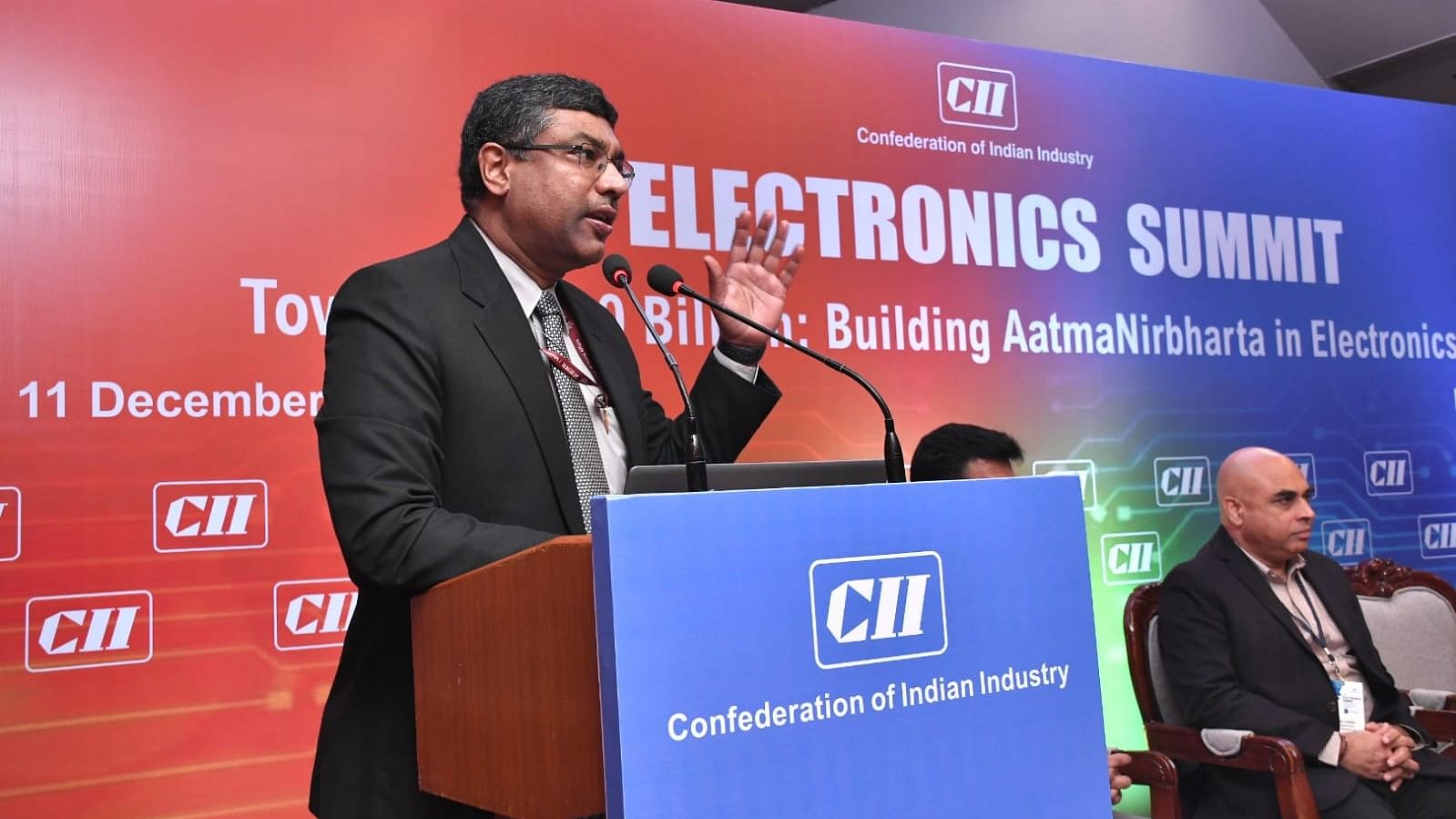
S Krishnan.
Credit: X/@CII4MfgIndia (File Photo)
New Delhi: Use of Indian languages in programming for artificial intelligence technology will bring down biases in the next generation technology using only limited or specific languages, a senior government official said on Monday.
While speaking at a FICCI event, Ministry of Electronics and IT Secretary S Krishnan said foundational models for AI around languages are developed for adoption at scale in India then it will provide leadership opportunities for the country.
At present government is working on AI technology to enable citizens across the country to communicate with each other seamlessly using digital translation tools developed under the Bhashini program.
Krishan said that emerging technologies, whether in the form of language or other aspects are becoming increasingly more important.
"They represent a huge opportunity for the global economy and for the Indian economy. As more content that's available in Indian languages and as more Indian languages go into large language models (LLMs) and other forms, the inherent biases that you have in using data, which is derived only from certain segments or certain languages does go down," he said.
AI technology-based language translation applications have been developed largely using English language as base and therefore often they are unable to give correct output in other languages.
"While it (English) can be a language of business to some degree, if you really need to democratise it, if you really want greater participation, if you really want people to feel involved in the process, it's absolutely essential that we get into local languages," he said.
"I think what all of this offers is one, an opportunity almost equal to what the industrial revolution of the 19th century was for the countries to grow. I think we need to do it for our own people, for the need to democratize development. I think this historic opportunity is something that we should not miss," Krishnan said.
FICCI Task Force on Multilingual Internet and Universal Acceptance, Chairman and Data Xgen Technologies CE Ajay Data said that 75 per cent of India's population prefers content in their local or regional language and there is a critical need for a multilingual internet in India's diverse linguistic landscape.
"In this diverse country of 22 official languages and over 1600 dialects, the significance of a multilingual internet cannot be overstated. The real use of the internet lies in enabling people to read and write in their language," he said.
Data said India, being the second largest online market globally, faces the challenge of harnessing the internet's potential as a unifying force.
"Linguistic diversity must be embraced to truly realise the internet's unifying potential," Data said.